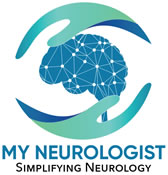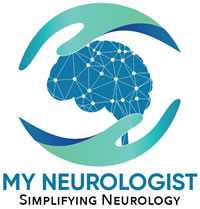Cluster headache is a particular type of headache with some similarities to migraine, but also many key differences.
What is the meaning of cluster in cluster headache?
The cluster means that the headache comes in cluster of attacks. It may start one day occurring on regular basis and may last for a cluster of days to weeks, before suddenly disappearing. This is until it reappears some time later, after weeks to months to even years, with similar recurring pattern.
What are some unique qualities of cluster headache?
Incidence: It is not as common as migraine headache. Migraine affects about 10 percent of men and 20 percent of women, while cluster headache affects less than 1 percent of people. Unlike migraine, it affects more men than women. Similar to migraine, risk of cluster headache increases within a family.
Timings: In a classical case, patient typically wakes up with pain, usually around early AM hours. It may follow a pattern and come back at same hour every day. There may be just one attack in a day or a few.
Triggers: Unlike migraine, not too many triggers are known; though it may be triggered by alcohol, especially wine.
Location: It is almost always one-sided, affecting the same side every time. The areas involved are the eye, areas around the eye, especially the forehead, temple, back of the head, or the whole one side.
Pain type: It may be dull boring pain or more typically like a knife being inserted in the head.
Severity: Severe to intolerable. Cluster headache pain can be so severe that patient may not feel comfortable lying down or resting, and may pace or run around, or even hit his head to the walls. In rare situation, with extreme pain, patient may be mistaken as having a psychiatric attack, while suffering from an unbearable pain.
Associated features: Other than obvious restlessness and distress, patient may have watering from the nostril and eye, face sweating, redness of the eye, unequal pupil, or droopiness of the eyelid, all on the painful side.
Duration: Each headache may last for 15-120 minutes, or little more. Patient may wake up at 2AM with an attack, pace around the house with pain, and may go back to sleep an hour or two later. In some patients, there is not much pain-free period between multiple attacks in a day. A cluster may last for a few days to a few weeks.
What causes cluster headache?
Exact cause is unknown. What is known is as follows: It probably is triggered by some malfunction in an area of the brain called hypothalamus. This area is also involved in control of our body’s day-and-night (circadian) cycles, which may explain its timing patterns. Whatever is the trigger, it leads to dilation of some blood vessels and irritation of certain nerves. It is not clear what triggers an attack and how an attack is terminated by itself, even without treatment.
How is cluster headache diagnosed?
It is diagnosed by its typical history, associated feature, and sometimes examination findings. There is no formal test for to diagnose cluster headache.
How is cluster headache treated?
The principle of treatment is similar to migraine, with medicines to treat a headache when it happens, and other medicines that may be used to prevent an attack. The main difference is of choices; compared to migraine, very few medicines work for cluster headaches.
Treatment to terminate a cluster: In many patients, a brief course of oral prednisone may terminate an attack of cluster headaches altogether. Using similar approach, rarely a long-acting steroid injection may also work.
Treatment of a cluster headache when it happens: Overall, the best medicine so far is sumatriptan, which can be taken as a pill, as a nasal spray, or as an injection. Pill is not a useful option, as it takes too long to work. Spray may take 20-30 minutes to work, but an injection may work in a few minutes. An alternate choice is zolmitriptan nasal spray. Usual pain medicines like ibuprufen or acetaminophen seem not to work. There is hope that a new and developing class of medicines called CGRP inhibitors may also be effective.
Another option to consider is inhalation of pure oxygen for a few minutes. For some reasons, it helps. It may be an option for someone having too many headaches and not responsive to controlling medicines. Probably the only downside to this treatment is having an ugly looking cylinder in the bedroom. There is no significant side effects if taken as directed.
Treatment to prevent or control cluster headaches: This treatment option is useful when steroid is unable to terminate a cluster, patient has frequent or daily headaches, and the cluster is not going away on its own either. Similar to migraine treatment, medicines used to control cluster headaches are not painkillers, but for unknown reasons they work. In this category, the choice drug is verapamil. It works better in higher doses. It is a blood pressure medicine but even in patients with normal blood pressure, its use is relatively safe. It shall be the drug of choice if the patient also has high blood pressure. In that case, other blood pressure medicines may be stopped or decreased while using verapamil.
The second choice for a pill is lithium carbonate. Its use implies that other controlling measures have been tried and failed. With that said, some patients particularly do well on lithium. It may be the choice if patient also has mood disorder with bipolar tendencies. The next choice of pill may be is indomethacin. It may work in some patients but it is a difficult pill to take for longer duration due to its side effects.
CGRP inhibitor drugs, such as galcanezumab, are another addition to our limited armamentarium against cluster headaches. If it is up to me, I recommend this option first, before verapamil and lithium. But patient’s insurance carrier frequently trumps this decision in favor of a cheaper option.
Some other ways of treatment:
- Occipital nerve block: a steroid injection in the back of the head. It is a useful tool for some patients, especially in acute setting.
- Occipital nerve stimulation by an electric device.
- Acupuncture.
Where may I find more information about Cluster Headaches?
Center for Disease Control and Prevention


Leave a Reply
Your email is safe with us.
You must be logged in to post a comment.